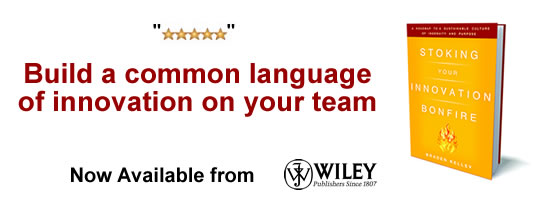Why Less is More: Product Strategy
 Anxiety floods the boardroom, the conference rooms, every decision. Costs are rising. Returns are flat. Margins are thinning. Now, private label competitors are beating us in every area: technology, price, placement, design and sales. Worse, they have turned the category that we invented into a commoditized war zone and keep us in a rigid box that controls every factor of our influence and gives them every advantage.
Anxiety floods the boardroom, the conference rooms, every decision. Costs are rising. Returns are flat. Margins are thinning. Now, private label competitors are beating us in every area: technology, price, placement, design and sales. Worse, they have turned the category that we invented into a commoditized war zone and keep us in a rigid box that controls every factor of our influence and gives them every advantage.
At this point, most companies who can relate to the above scenario make a horrible misstep, line extending their current product line. They assume that more lines in the water equal growth. While this theory may sell a few more SKUs, in reality, it feeds an addictive mindset: More is better. The issues compound. Now, that the brand name hits the shelves with a new line, private label flanks their move and copies their makes and models. The universe of decisions, already too rich with choices for even the most discerning consumer, expands. While consumers are reeling amidst a bad shopping experience, the competitors duke it out over new features that only they will understand. The race is on, but the game is fixed.
At this point a novel, industry-wide technology trend may appear. Even though your company is not the major player (the platform), the default thinking inside the company is that this wave –despite slow as molasses market adoption – represents a way out. Indeed, this technology wave may break the deadlock of our existence. Thought through, though, this area is merely another distribution channel where we are a minor player without much authority or autonomy. So, symbolically speaking, taking the mask off of the mass retailer and putting it on the face of the connectivity giant. As The Who sang: “Meet the new boss, same as the old boss.â€
The essence of the issue at hand is brand management, coupled with product management and innovation. Given the feature-creep galore and fixed mindset, no one is taking risks to be a market leader. The equity of the brand – and the category – was sold up river and now every circuit of the business is plugged into the losing game, without the saving grace of brave actions taken to re-establish market leadership.
Our advice: Change the mind of the category. Invert the thinking around the category. Start with the product line. In the above scenario, more is not more. More is less: less margin, less profit, less market share. Trimming the product line into a few to several choices will do three, key things.
- First off, having fewer products means more standardization and fewer parts, or fewer costs.
- Second, fewer choices have been proven to be a good thing for driving consumer preference and brand protection.
- Third, focus. With fewer products, the company can reinvent itself with a focus that is not spread across an acre-long spreadsheet of poorly performing, me-too products.
Yes, it seems counter-intuitive, but in the retail game of brand versus private label, less is more.
Wait! Before you go.
Choose how you want the latest innovation content delivered to you:
- Daily — RSS Feed — Email — Twitter — Facebook — Linkedin Today
- Weekly — Email Newsletter — Free Magazine — Linkedin Group
 Michael Graber is the co-founder and managing partner at Southern Growth Studio, a Memphis, Tennessee-based firm that specializes in growth strategy and innovation. A published poet and musician, Graber is the creative force that complements the analytical side of the house. He speaks and publishes frequently on best practices in design thinking, business strategy, and innovation and earned an MFA from the University of Memphis. Follow Michael @SouthernGrowth
Michael Graber is the co-founder and managing partner at Southern Growth Studio, a Memphis, Tennessee-based firm that specializes in growth strategy and innovation. A published poet and musician, Graber is the creative force that complements the analytical side of the house. He speaks and publishes frequently on best practices in design thinking, business strategy, and innovation and earned an MFA from the University of Memphis. Follow Michael @SouthernGrowth
NEVER MISS ANOTHER NEWSLETTER!
LATEST BLOGS
Three things you didn’t know about credit cards
Photo by Ales Nesetril on Unsplash Many of us use credit cards regularly. From using them for everyday purchases to…
Read MoreFive CV skills of a business-minded individual
Photo by Scott Graham on Unsplash The skills listed on a CV help employers quickly understand your suitability for a…
Read More



Hello this is Leo Harry. What are the diffrences in marketing a product to individuals and businesses?
Hello this is Leo Harry. Which degree would give me a better chance of landing a solid job in four years? personally, i do not know much about the marketing feild, so if someone could inform me of the job opportunities, that would be awesome too.